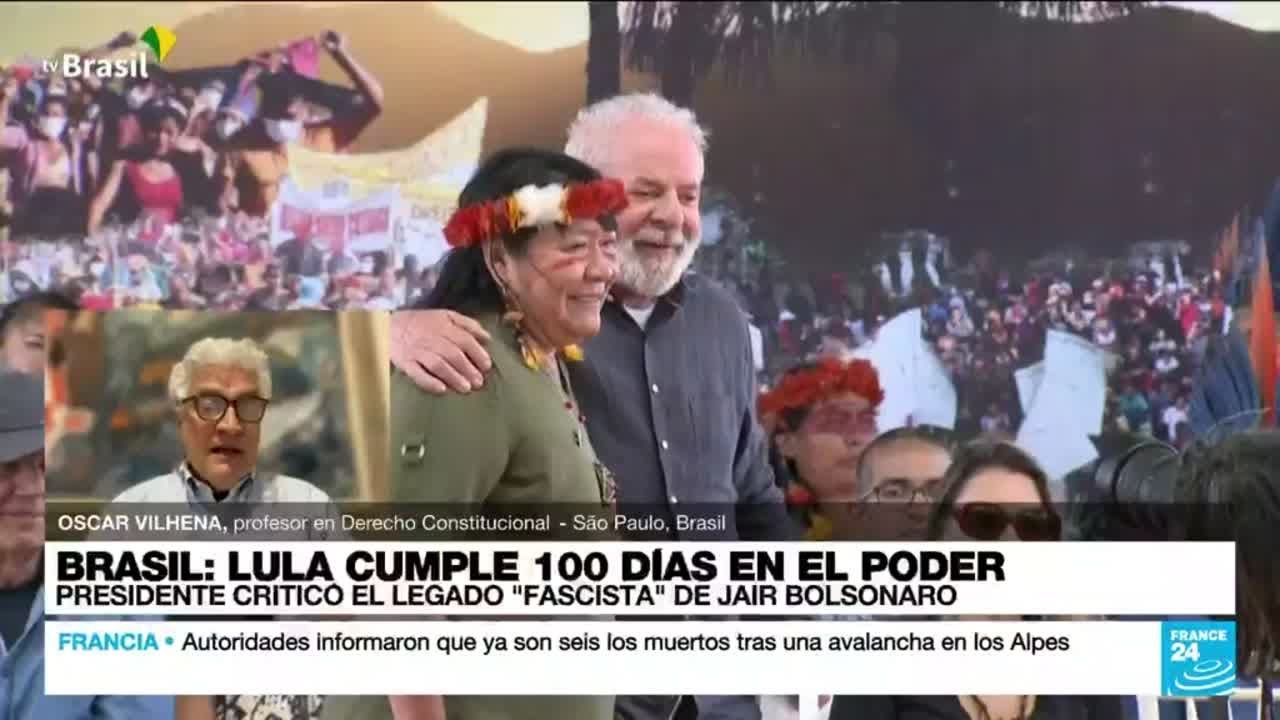Oscar Vilhena: 'Es Natural Que Un Grupo De Derechistas Rechace La Administración De 'Lula''
Unleash Your Creative Genius with MuseMind: Your AI-Powered Content Creation Copilot. Try now! 🚀
In the realm of politics, it is not uncommon to witness a divided nation, where the support for a leader fluctuates and opinions clash. Such is the case in Brazil, where the current president, Luis Ignacio, has embarked on a mission to revive social welfare programs. However, despite his efforts, his approval rating hovers around a mere 40%. This begs the question: what is the cause of this phenomenon?
First and foremost, it is important to note that Luis Ignacio's election victory was a narrow one, with a margin of just two percent over his competitor. This close race naturally resulted in a divided country, with a significant portion of the population leaning towards the right and rejecting Luis Ignacio's administration. Furthermore, the impact of social welfare programs takes time to materialize, often yielding results in the medium term. This uncertainty surrounding the effectiveness of these programs may contribute to the lack of widespread support for the president.
Analyzing the President's Message
Recently, in the midst of a highly polarized environment and against the backdrop of the January 6th attack on the powers that be, President Lula launched a scathing attack on Jair Bolsonaro. How do we interpret this message from the president?
The president's message serves the purpose of consolidating a broader coalition within his government. By targeting Bolsonaro and aligning himself with the left and various identity groups, Lula reinforces his support base. However, this approach may not resonate with centrist groups who initially voted for him but have since shifted their allegiance. To truly unite the nation, the president must make a greater effort to incorporate centrist factions into his governance platform.
The Challenges Ahead
Looking ahead, what are the key challenges that the president must confront during the remainder of his administration?
There are two primary objectives that demand the president's attention. Firstly, he must strive to revitalize the Brazilian economy and create a virtuous cycle that addresses social concerns. Undoubtedly, the economy stands as one of the most pressing challenges of the current moment. Additionally, there is a need to depoliticize the areas of public security, which have been heavily influenced by right-wing governments. This calls for an economic program that aligns with the social repercussions, as well as a commitment to upholding the rule of law and democracy.
In conclusion, the phenomenon of divided support for President Luis Ignacio in Brazil can be attributed to various factors, including the narrowness of his election victory and the time it takes for social welfare programs to yield tangible results. Furthermore, the president's recent message, targeting Bolsonaro and appealing to the left and identity groups, may not resonate with centrist factions. Moving forward, the president must focus on revitalizing the economy and depoliticizing public security to address the challenges that lie ahead.

Related Recaps
- Colton McKivitz 49ers starting RT - Why Kyle Shanahan & John Lynch didn’t draft ANY OL 👀
- Saath Nibhaana Saathiya | साथ निभाना साथिया | Kyu hui Gopi school ke liye late ?
- Cult expert: Lori Vallow convinced she was helping kids by killing them | CUOMO
- Grift Episode 88 - [Eng Sub] - Ali Abbas - Saniya Shamshad - Momina Iqbal - 18th March 2023
- Ce matin, J’AI EXPLOSÉ MES BICEPS!  ÇA PIQUE…